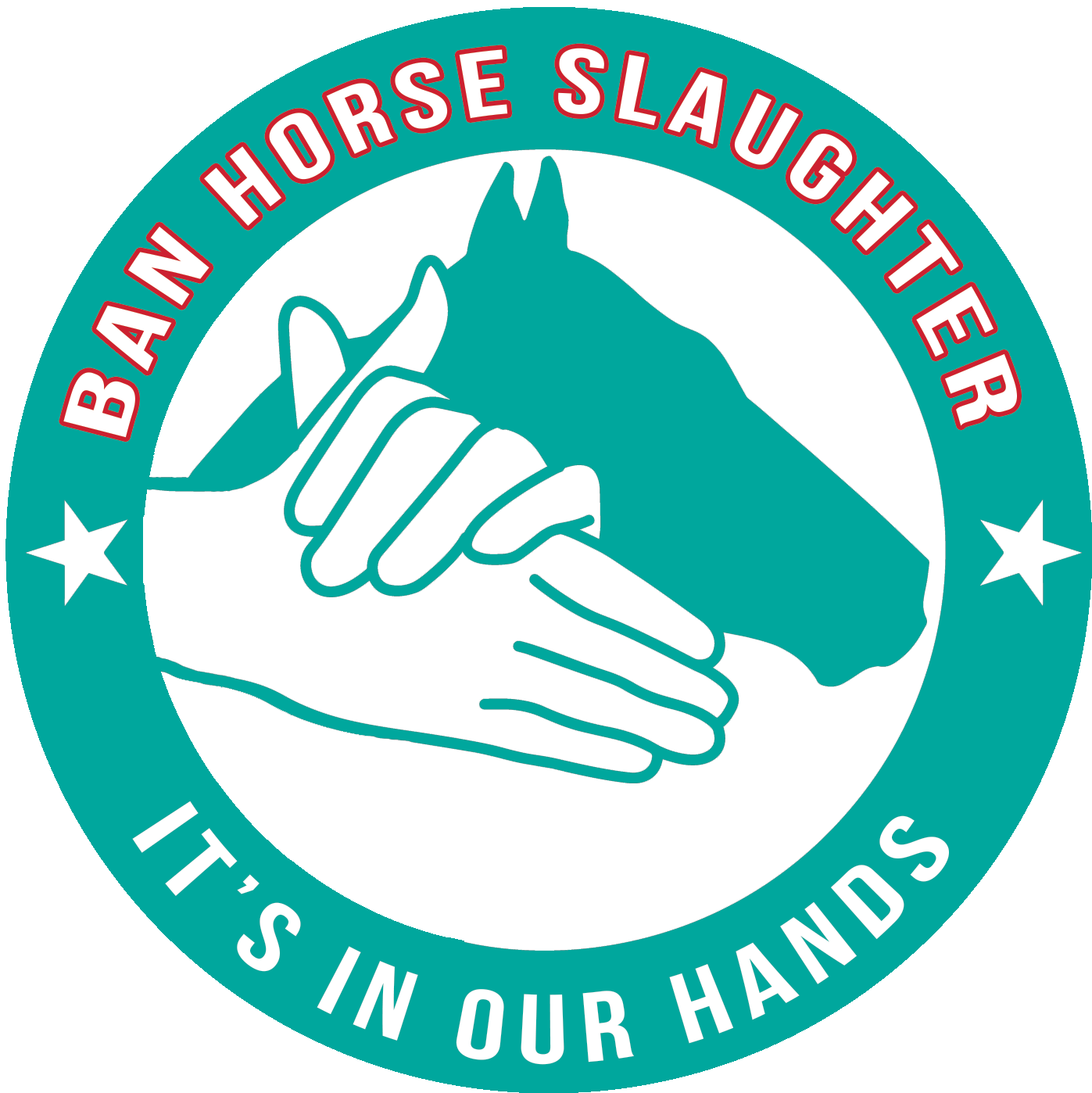What happens to horses that aren’t slaughtered? Isn’t it better than being left to starve?
That sounds like a reasonable question even if the end result is offensive and strongly opposed by the overwhelming majority of Americans. We all assume slaughtering a horse for human consumption is terrible, but what happens to those poor horses if slaughter isn’t available? Are they are left to starve or be abused out in the field? If they aren’t killed to fill the plates of high-end diners overseas what happens?
I added that last question so you can see the sad and disingenuous intention of those who say we need slaughter in order to deal with “unwanted” horses without slaughter, so they aren’t left to starve or endure abuse. To think it better that we reestablish a system filled with well documented stages of abuse that seeks out healthy horses across the US at auction barns, free to good home ads, misleading transactions by unsuspecting owners or just plain horse theft right out of the field than addressing the issue they are so concerned about in the first place – starvation or abuse.
Slaughter is a demand driven industry, it isn’t a service provided to help save horses from a lifetime of abuse and starvation. Kill-buyers actively seek out healthy horses to fill the demand of companies operating out of Canada and Mexico. These horses, if not grabbed up by the kill-buyers, would simply move on within the normal horse industry as hundreds of thousands of horses do each year.
I will be honest; horse abuse exists in the US. I have spent my career fighting to end animal abuse and don’t want to see it any time. It is wrong, it is illegal, and it is something we should all be focusing on to resolve and not simply pushing the issue aside to advocate for another abusive industry we can easily end. However, there is zero evidence that eliminating horse slaughter leads to an increase in abuse. First of all, horse slaughter has not been banned. How can you make the claim of a rise in abuse when kill-buyers are still actively seeking out horses for slaughter? That point alone moots the claim.
So, what does happen? In 1989 almost 350,000 horses were going to slaughter at several plants in the US and across the border to Mexico and Canada. While last year just over 60,000 horses were exported to Canada and Mexico for slaughter. There is no documented evidence of an increase in abuse, abandonment (documented evidence, not what you read on the internet) or starvation following this dramatic drop in horses going to slaughter. As we have said, without slaughter, horses simply move on to a new owner, stay with their current owner, get placed with one of the growing number of horse rescues across the US or are humanely euthanized.
Let's talk about horse rescues. Even at the time I started this campaign in 2001 there were hundreds of horse rescues across the country. Since then the number and quality of horse rescues has jumped dramatically. In 2007, I co-founded the Homes for Horses Coalition, the nation's first organization dedicated to advancing and supporting the equine rescue community in the US. Today, over 700 horse rescues and sanctuaries are part of this growing network and all are opposed to horse slaughter. All work hard every day to step in and make sure the horses in their care are well taken care of.
Despite claims by individuals not affiliated with horse rescues, not every horse currently going to slaughter will need to be absorbed into the rescue community. Nor should they. Owner responsibility must improve and without the option of horse slaughter, over breeders and irresponsible horse owners will not be able to just dump horses into slaughter. Are horse rescues full and unable to take in more horses? Yes and no. If you understand the rescue community (horse, dog, elephant, chimpanzee), most, if not all, operate at capacity. That is the nature of the industry. However, they are constantly rehabilitating horses so they can then be adopted out and the cycle starts all over again.
Just think of the impact we will all have once we stop wasting time and money fighting over legislation in Washington, DC and horse slaughter is banned. We can turn our attention to the rescues that are stepping up to help horses across the country. We can help with assistance through “Safety Net” programs that provide financial or emotional support to individuals facing hard times, but desperately want to keep and care for their horses. That is where our focus should be. Helping those in need and working to end horse abuse, not just shift that abuse from the field to the slaughterhouse.
So, the next time you hear someone make an excuse for defending horse slaughter by saying there aren’t enough homes or rescues to take in horses urge them to get the facts and urge them to support their local rescue. Because with or without horse slaughter, rescues need our support. Let's focus on solutions and not excuses.

